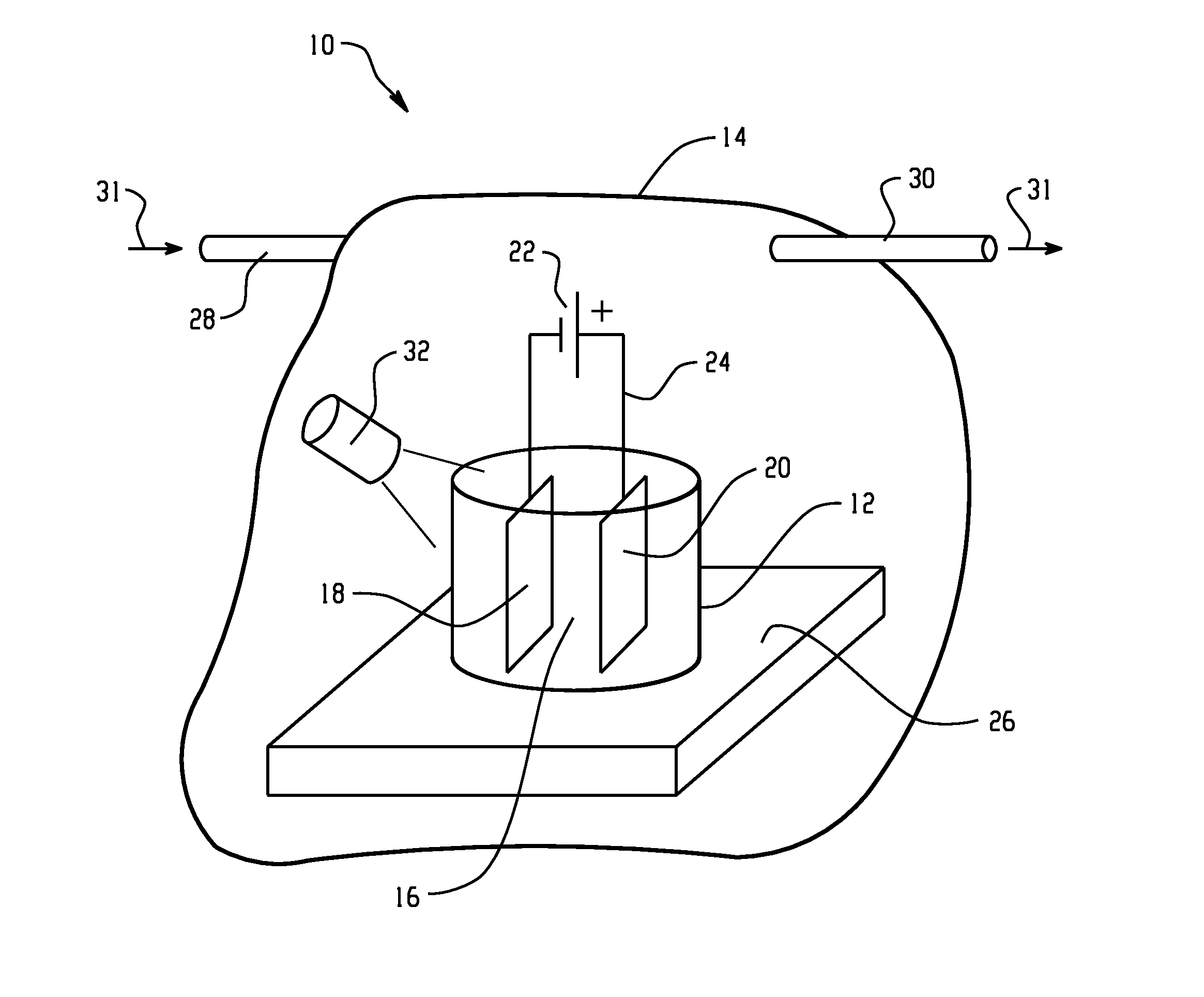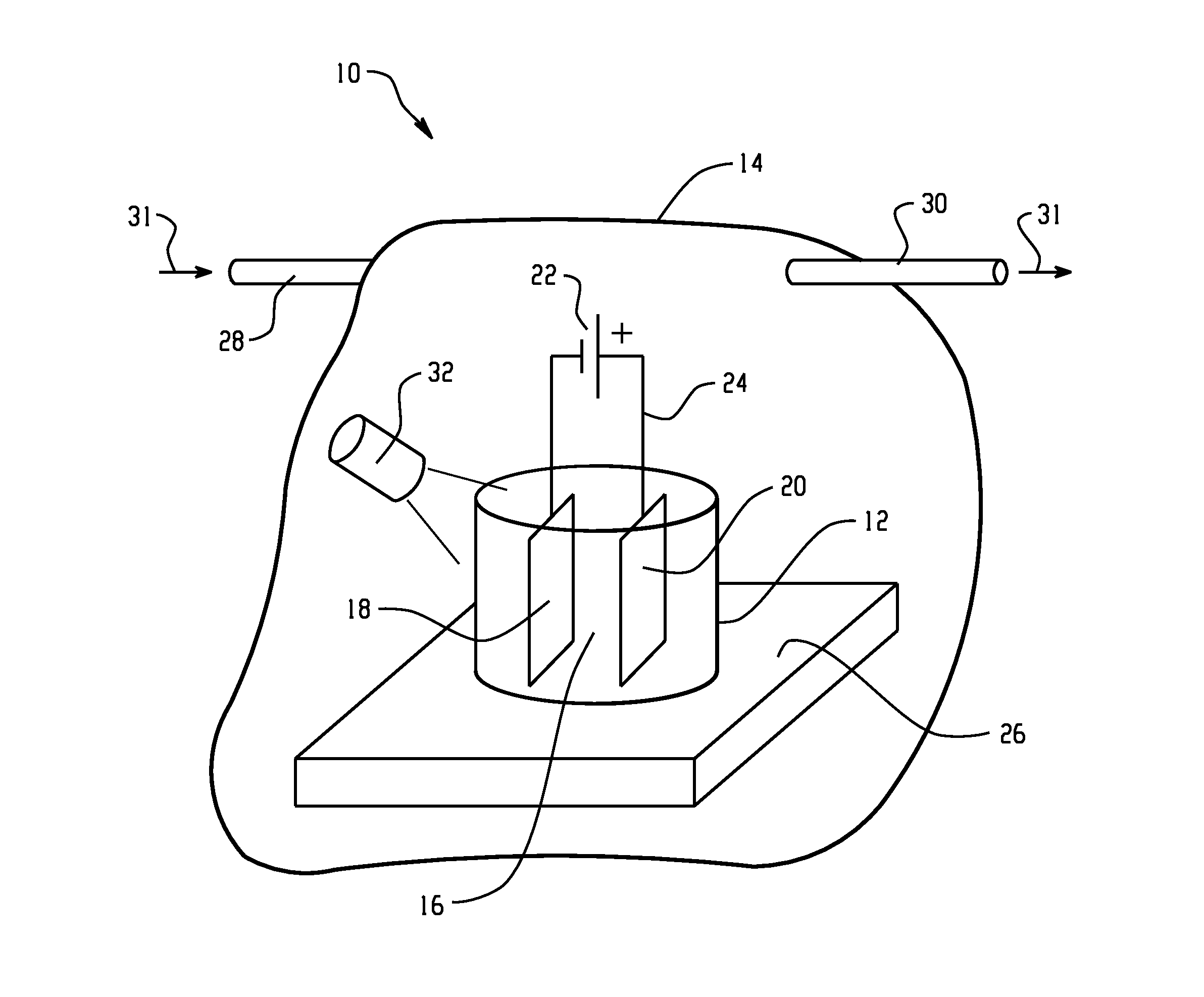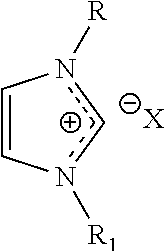Methods and materials for electroplating aluminum in ionic liquids
a technology of aluminum electroplating and ionic liquid, applied in the direction of electrolysis process, electrolysis components, cell, etc., can solve the problems of reducing the thickness of the layer, affecting the stability of the layer,
- Summary
- Abstract
- Description
- Claims
- Application Information
AI Technical Summary
Benefits of technology
Problems solved by technology
Method used
Image
Examples
Embodiment Construction
[0010]As mentioned above, the electrolyte for electroplating described in the embodiments disclosed herein comprises an ionic liquid. Ionic liquids are generally recognized in the scientific literature as being salts having a melting point below 100° C.;
[0011]Ionic liquids are well-known, and have been the subject of significant study and research. Ionic liquids tend to be air and water stable. Exemplary cations for ionic liquids used in the embodiments described herein include, but are not limited to imidazolium (e.g., 1-ethyl-3-methylimidazolium, 1-ethyl-2,3-dimethylimidazolium, 1-butyl-3-methylimidazolium (“BMI”), 1-hexyl-3-methyl-imidazolium (“HMI”), pyridinium (e.g., N-methylpyridinium), tetraalkylammonium, pyrrolidinium (e.g., 1-butyl-1-methyl-pyrrolidinium (“BMPyr”), trialkylsulfonium (e.g., triethylsulfonium), pyrazolium, triazolium, thiazolium, oxazolium, pyridazinium, pyrimidinium, pyrazinium. Exemplary anions for ionic liquids used in the embodiments described herein incl...
PUM
 Login to View More
Login to View More Abstract
Description
Claims
Application Information
 Login to View More
Login to View More - R&D
- Intellectual Property
- Life Sciences
- Materials
- Tech Scout
- Unparalleled Data Quality
- Higher Quality Content
- 60% Fewer Hallucinations
Browse by: Latest US Patents, China's latest patents, Technical Efficacy Thesaurus, Application Domain, Technology Topic, Popular Technical Reports.
© 2025 PatSnap. All rights reserved.Legal|Privacy policy|Modern Slavery Act Transparency Statement|Sitemap|About US| Contact US: help@patsnap.com



